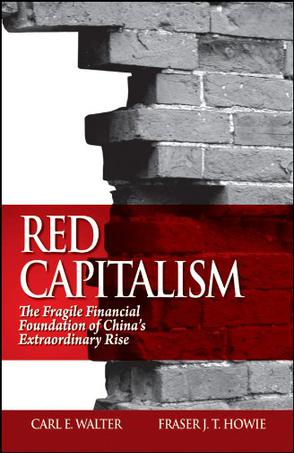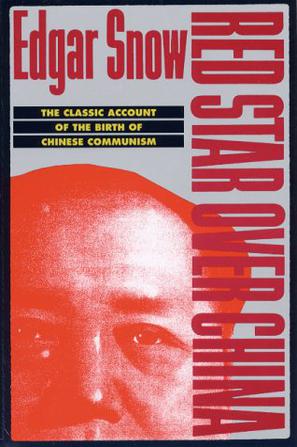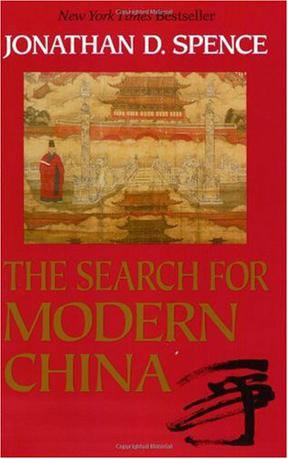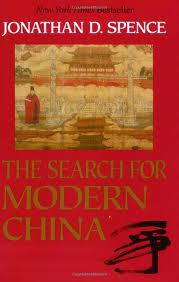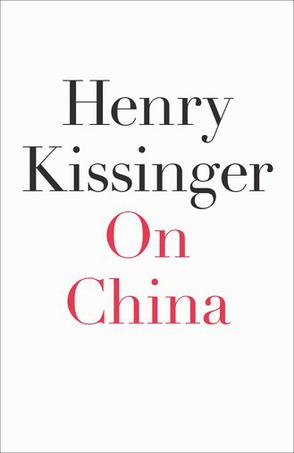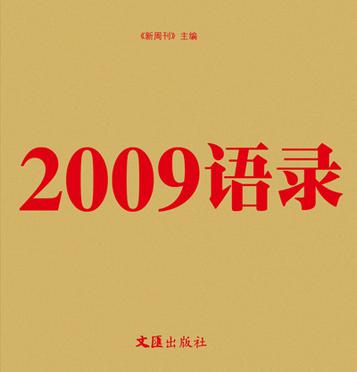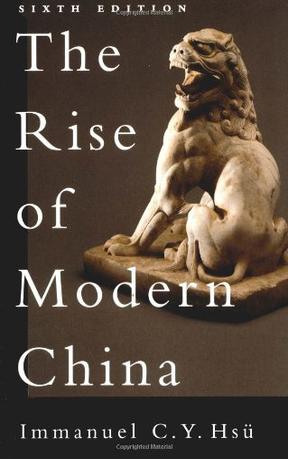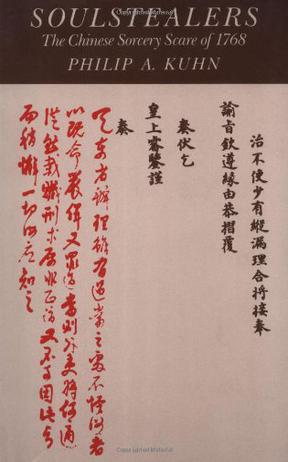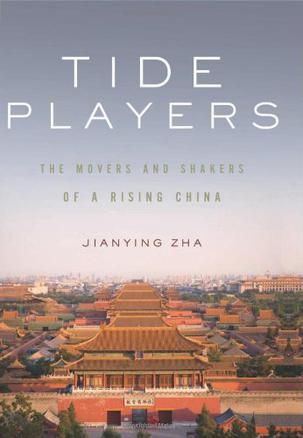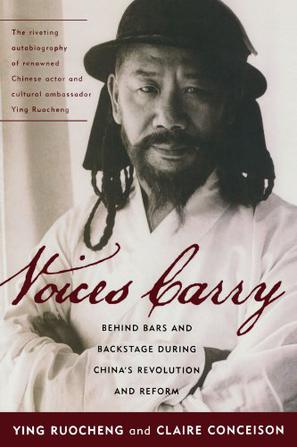欢迎来到相识电子书!
标签:China
-
Red Capitalism
For many years now China's economy has seemed unstoppable. A slow appreciation of the renminbi in 2007 brought wave upon wave of liquidity into China and allowed its companies and banks to raise hundreds of billions in dollars via stock market listings. State banks that had started the new century as bankrupt relics of a communist past became the darlings of international investors. Even the collapse of Lehman Brothers in 2008 and the ensuing global financial crisis seemed to have little impact on China as the government quickly responded with a huge stimulus package. But the Lehman collapse was a dramatic wake up call to the Chinese leadership. This model of bank and capital market reform had been studiously emulated for more than a decade and had brought great benefits to China. But now, although they believed it to be bankrupt, the Chinese government were bereft of new ideas. In the face of the global financial crisis the government returned to what it knows best, massive state intervention via the banking system. Ten years of banking and capital market reforms were dead. In Red Capitalism, Carl Walter and Fraser Howie detail how the Chinese government reformed and modeled its financial system in the 30 years since it began its policy of engagement with the west. Instead of a stable series of policies producing steady growth, China's financial sector has boomed and gone bust with regularity in each decade. The latest decade is little different. Chinese banks have become objects of political struggle while they totter under balance sheets bloated by the excessive state-directed lending and bond issuance of 2009. Looking forward, the government's response to the global financial crisis has created a banking system the stability of which can be maintained only behind the walls of a non-convertible currency, a myriad of off-balance sheet arrangements with non-public state entities and the strong support of its best borrowers--the politically potent National Champions--who are the greatest beneficiaries of the financial status quo. China's financial system is not a model for the west and, indeed, is not a sustainable arrangement for China itself as it seeks increasingly to assert its influence internationally. This is not a story of impending collapse, but of frustrated reforms that suggests that any full opening and meaningful reform of the financial sector is not, indeed cannot be, on the government's agenda anytime soon. -
Red Star over China
The first Westerner to meet Mao Tse-tung and the Chinese Communist leaders in 1936, Edgar Snow came away with the first authorized account of Mao’s life, as well as a history of the famous Long March and the men and women who were responsible for the Chinese revolution. Out of that experience came Red Star Over China, a classic work that remains one of the most important books ever written about the birth of the Communist movement in China. This edition includes extensive notes on military and political developments in China, further interviews with Mao Tse-tung, a chronology covering 125 years of Chinese revolution, and nearly a hundred detailed biographies of the men and women who were instrumental in making China what it is today. -
The Search for Modern China
"A remarkable achievement...vivid...fluent, graceful.... A publishing event."—Boston Globe In this widely acclaimed history of modern China, Jonathan Spence achieves a fine blend of narrative richness and efficiency. Praised as "a miracle of readability and scholarly authority," (Jonathan Mirsky) The Search for Modern China offers a matchless introduction to China's history. -
Modern China
China today is never out of the news: from human rights controversies and the continued legacy of Tiananmen Square, to global coverage of the Beijing Olympics, and the Chinese "economic miracle." It is a country of contradictions and transitions: a peasant society with some of the world's most futuristic cities, an ancient civilization that is modernizing as rapidly as possible, a walled-off nation that is increasingly at the center of world trade. This Very Short Introduction offers an indispensable starting point for anyone who needs to quickly know the themes and controversies that have shaped modern China. Prize-winning author and scholar Rana Mitter examines the modern history, politics, economy, and thriving cultural scene of contemporary China, and its relations with the wider world. This lively guide covers a range of social issues from the decline of footbinding and the position of women in society, to the influence of television and film, and the role of the overseas Chinese diaspora. It covers many prominent figures as well, such as the Communist leaders, the last emperors, and prominent writers and artists throughout China's history. -
On China
In this sweeping and insightful history, Henry Kissinger turns for the first time at book-length to a country he has known intimately for decades, and whose modern relations with the West he helped shape. Drawing on historical records as well as his conversations with Chinese leaders over the past forty years, Kissinger examines how China has approached diplomacy, strategy, and negotiation throughout its history, and reflects on the consequences for the global balance of power in the 21st century. Since no other country can claim a more powerful link to its ancient past and classical principles, any attempt to understand China's future world role must begin with an appreciation of its long history. For centuries, China rarely encountered other societies of comparable size and sophistication; it was the "Middle Kingdom," treating the peoples on its periphery as vassal states. At the same time, Chinese statesmen-facing threats of invasion from without, and the contests of competing factions within-developed a canon of strategic thought that prized the virtues of subtlety, patience, and indirection over feats of martial prowess. In On China, Kissinger examines key episodes in Chinese foreign policy from the classical era to the present day, with a particular emphasis on the decades since the rise of Mao Zedong. He illuminates the inner workings of Chinese diplomacy during such pivotal events as the initial encounters between China and modern European powers, the formation and breakdown of the Sino-Soviet alliance, the Korean War, Richard Nixon's historic trip to Beijing, and three crises in the Taiwan Straits. Drawing on his extensive personal experience with four generation of Chinese leaders, he brings to life towering figures such as Mao, Zhou Enlai, and Deng Xiaoping, revealing how their different visions have shaped China's modern destiny. With his singular vantage on U.S.-China relations, Kissinger traces the evolution of this fraught but crucial relationship over the past 60 years, following its dramatic course from estrangement to strategic partnership to economic interdependence, and toward an uncertain future. With a final chapter on the emerging superpower's 21st-century world role, On China provides an intimate historical perspective on Chinese foreign affairs from one of the premier statesmen of the 20th century. -
2009语录
《2009语录》内容简介:最具时代现场感、最个性化、最有趣的“中文甜点”盘点专家《新周刊》与知道分子联手编选。1000条语录·1000幅人物肖像·1000个时代现场创意人群的案头必备。 -
China Goes Global
Most global citizens are well aware of the explosive growth of the Chinese economy. Indeed, China has famously become the "workshop of the world." Yet, while China watchers have shed much light on the country's internal dynamics--China's politics, its vast social changes, and its economic development--few have focused on how this increasingly powerful nation has become more active and assertive throughout the world. In China Goes Global, eminent China scholar David Shambaugh delivers the book that many have been waiting for--a sweeping account of China's growing prominence on the international stage. Thirty years ago, China's role in global affairs beyond its immediate East Asian periphery was decidedly minor and it had little geostrategic power. Today however, China's expanding economic power has allowed it to extend its reach virtually everywhere--from mineral mines in Africa, to currency markets in the West, to oilfields in the Middle East, to agribusiness in Latin America, to the factories of East Asia. Shambaugh offers an enlightening look into the manifestations of China's global presence: its extensive commercial footprint, its growing military power, its increasing cultural influence or "soft power," its diplomatic activity, and its new prominence in global governance institutions. But Shambaugh is no alarmist. In this balanced and well-researched volume, he argues that China's global presence is more broad than deep and that China still lacks the influence befitting a major world power--what he terms a "partial power." He draws on his decades of China-watching and his deep knowledge of the subject, and exploits a wide variety of previously untapped sources, to shed valuable light on China's current and future roles in world affairs. -
Postcards from Tomorrow Square
Since December 2006, The Atlantic Monthly's James Fallows has been writing some of the most discerning accounts of the economic and political transformation occuring in China. The twelve essays collected here cover a wide range of topics: from visionary tycoons and TV-battling entrepreneurs to environmental pollution and how China subsidizes our economy. Fallows expertly and lucidly explains the economic, political, social and cultural forces at work turning China into a world superpower at breaknech speed. This eye-opening and cautionary account is essential reading for all concerned not only with China's but America's future role in the world. "One hundred years from now, when the West is looking at why China is where it is, historians will read Fallows." --- Dan Harris, China Law Blog -
The Search for Modern China
In this Second Edition of his widely acclaimed history of modern China, Jonathan Spence achieves a fine blend of narrative richness and efficiency. The text is tighter throughout and up-to-date on the most important scholarship in the field. The new discussions in this thorough revision include the extension of imperial power into central Asia by the eighteenth-century emperors, women's literacy and education in the Qing, the early development of Chinese nationalism, the roots of Chinese communism and alternatives to Mao, the early stages of the Great Leap Forward and of the Cultural Revolution. There is a new chapter at the end of the book on economic, cultural, and political developments since 1989. Praised as "a miracle of readability and scholarly authority," (Jonathan Mirsky) The Search for Modern China offers students a matchless introduction to China's history. 点击链接进入中文版: 追寻现代中国:1600-1912年的中国历史 -
When China Rules the World
How China's ascendance as an economic superpower will alter the cultural, political, social, and ethnic balance of global power in the twenty-first century, unseating the West and in the process creating a whole new world According to even the most conservative estimates, China will overtake the United States as the world's largest economy by 2027 and will ascend to the position of world economic leader by 2050. But the full repercussions of China's ascendancy-for itself and the rest of the globe-have been surprisingly little explained or understood. In this far-reaching and original investigation, Martin Jacques offers provocative answers to some of the most pressing questions about China's growing place on the world stage. Martin Jacques reveals, by elaborating on three historical truths, how China will seek to shape the world in its own image. The Chinese have a rich and long history as a civilization-state. Under the tributary system, outlying states paid tribute to the Middle Kingdom. Ninety-four percent of the population still believes they are one race-"Han Chinese." The strong sense of superiority rooted in China's history promises to resurface in twenty-first century China and in the process strengthen and further unify the country. A culturally self-confident Asian giant with a billion-plus population, China will likely resist globalization as we know it. This exceptionalism will have powerful ramifications for the rest of the world and the United States in particular. As China is already emerging as the new center of the East Asian economy, the mantle of economic and, therefore, cultural relevance will in our lifetimes begin to pass from Manhattan and Paris to cities like Beijing and Shanghai. It is the American relationship with and attitude toward China, Jacques argues, that will determine whether the twenty-first century will be relatively peaceful or fraught with tension, instability, and danger. When China Rules the World is the first book to fully conceive of and explain the upheaval that China's ascendance will cause and the realigned global power structure it will create. -
Soulstealers
Midway through the reign of Ch'ien-lung emperor, Hungli, mass hysteria broke out. It was feared that sorcerers were roaming the land clipping off the ends of men's queues (braids worn by royal decree) and chanting magical incantations over them in order to steal the souls of their owners. In this book, Kuhn chronicles this epidemic of fear and the official prosecution of soulstealers that ensued, so opening up a window on 18th-century China. The book raises questions not just about China, but also about past human behaviour in general and it demonstates how in any society, a provincial panic can become a national witch-hunt. -
River Town
A New York Times Notable Book Winner of the Kiriyama Book Prize In the heart of China's Sichuan province, amid the terraced hills of the Yangtze River valley, lies the remote town of Fuling. Like many other small cities in this ever-evolving country, Fuling is heading down a new path of change and growth, which came into remarkably sharp focus when Peter Hessler arrived as a Peace Corps volunteer, marking the first time in more than half a century that the city had an American resident. Hessler taught English and American literature at the local college, but it was his students who taught him about the complex processes of understanding that take place when one is immersed in a radically different society. Poignant, thoughtful, funny, and enormously compelling, River Town is an unforgettable portrait of a city that is seeking to understand both what it was and what it someday will be. Third-place winner of Barnes & Noble's 2001 Discover Great New Writers Award for Nonfiction -
My Country And My People
Many of the earliest books, particularly those dating back to the 1900s and before, are now extremely scarce and increasingly expensive. Hesperides Press are republishing these classic works in affordable, high quality, modern editions, using the original text and artwork. -
Voices Carry
Voices Carry is the riveting autobiography of one of China's most prominent citizens of the twentieth century. Beginning with his imprisonment during the Cultural Revolution, Ying Ruocheng's narrative takes us through unexpectedly amusing adventures during his incarceration before flashing back to his childhood and the legacy of his elite Manchu Catholic family. An internationally renowned actor, director, and translator, Ying also held a high government post as vice minister of culture before and during the Tian'anmen Square massacre. Detailing his experiences as a student and actor during China's civil war and revolution, as well as episodes ranging from his partnership with Arthur Miller on Death of a Salesman to his roles in the films The Last Emperor and Little Buddha during the era of reform, Ying Ruocheng's memoir provides a rare glimpse behind the scenes of contemporary Chinese culture and politics.
热门标签
下载排行榜
- 1 梦的解析:最佳译本
- 2 李鸿章全传
- 3 淡定的智慧
- 4 心理操控术
- 5 哈佛口才课
- 6 俗世奇人
- 7 日瓦戈医生
- 8 笑死你的逻辑学
- 9 历史老师没教过的历史
- 10 1分钟和陌生人成为朋友



